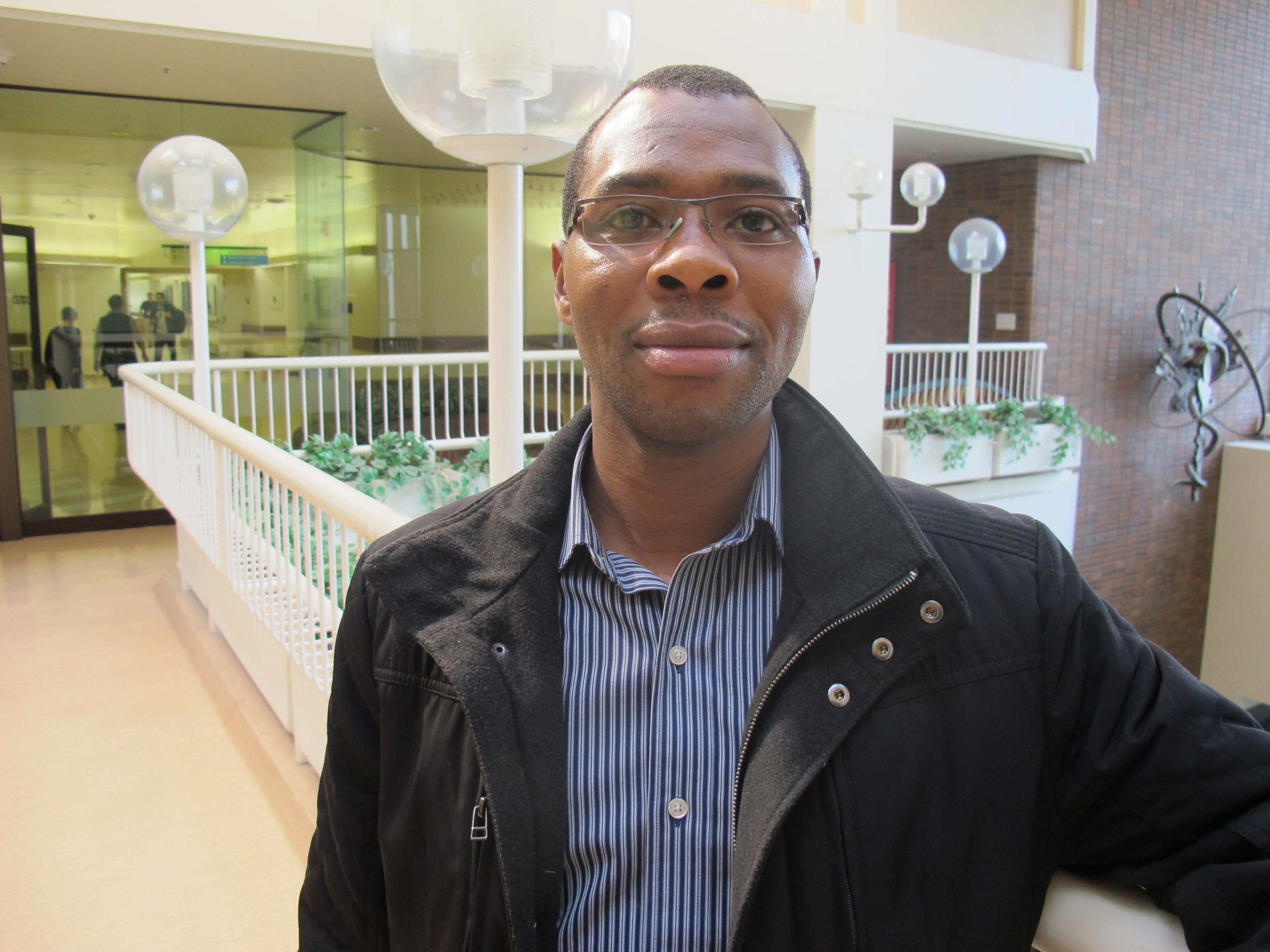
Cardiologist Leonard Ngunga is one of many physicians and nurses receiving training from the University of Alberta as part of an extended partnership between the U of A and Kenya's Aga Khan University Hospital.
Leonard Ngunga knew little of Edmonton before he first came in 2010. Today, after nearly three years of intensive training at the University of Alberta-spread over two extended visits-the Kenyan cardiologist is preparing to return home with lessons in hand and a deep appreciation for his Edmonton experience.
"When I first came here it was my first time outside the country for the purpose of learning. It was a big experience," says Ngunga, a faculty member of the Aga Khan University Hospital in Nairobi, Kenya. "But in that time I've learned a lot about academics and health care from my interactions at the University of Alberta."
The cardiologist is just one of many physicians and nurses receiving training from the University of Alberta as part of an extended partnership between the U of A and Aga Khan University Hospital. The partnership, now entering its eighth year, has worked to improve Aga Khan's cardiology program through collaboration, research, training opportunities and faculty exchanges.
With his training, Ngunga will help direct Kenya's first cardiology fellowship training in East Africa upon his return to the country in early May. The partnership, he says, has helped his university's cardiology program blossom.
"When I first came, the cardiology faculty [back home] was only two people. Now we have at least five faculty in the department," says Ngunga. "We have a cardiac care unit which is dedicated to taking care of heart patients. It's the only one in the region. We also have a busy and growing inpatient and outpatient cardiology service. We are now at the level where we have developed a curriculum and are ready to start training cardiologists in the region."
"It looks like small incremental gains, but it's actually been massive cumulatively," says Renny Khan, director of International Programs at the University of Alberta's Faculty of Medicine & Dentistry.
Khan has helped spearhead the partnership over the past several years and watched as trainees have returned to Kenya to help build its cardiology expertise. He says the collaboration has gone so well the two institutions have been expanding the arrangement in the areas of cardiac surgery, general internal medicine, ophthalmology, nephrology and undergraduate global health electives.
"It's like planting the seedling and now we have to water it, protect it and help it to grow," says Khan. "There is a lot of trust that's been built up over the past several years. Now I feel that we are poised to do more."
The partnership was initially helped along through the support of the Aga Khan Foundation Canada-a charitable organization with the goal of improving living conditions and opportunities for the poor. The early efforts have proven mutually beneficial.
Both Ngunga and Khan say the exchange of knowledge goes both ways. Soon they believe there will be an increasing number of residents and U of A faculty members visiting the Aga Khan University Hospital, where they will have their own opportunities to learn.
"Some doctors here [at the University of Alberta], will have heard about diseases that they [only consider to be] historical. But when they come to Kenya, they will see them," says Ngunga.
"They can have far advanced disease states," adds Khan. "Here, they would be diagnosed early and never get to that stage, so our trainees don't see it anymore. They are not prepared to handle cases like that because they have never interacted with them. Whereas you go to Kenya and other places and you will actually see these things. That experience will make our trainees better doctors."
With his Edmonton experience nearing an end, Ngunga is eager to apply the lessons he's learned to strengthen his university's cardiology program back home. It's a path he hopes more of his colleagues follow as they continue building expertise to better serve patients in Kenya.
"It has been very positive for me. It has taught me a lot and is something which I would encourage others to experience as well."